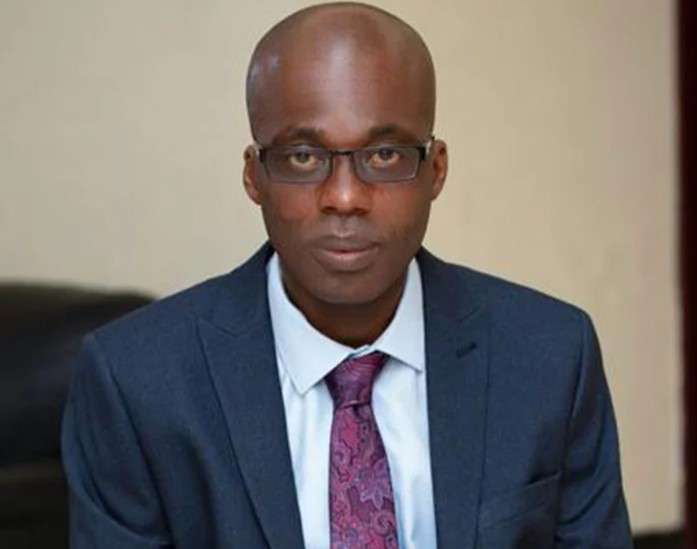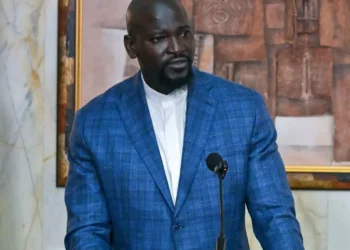Medical negligence is not limited to Ghana but remains a global crisis that continues to claim lives and deplete national resources.
This perspective was highlighted by Dr. Kwame Sarpong Asiedu, a Health Fellow at CDD Ghana, who stressed the importance of placing the issue in a broader context.
He noted that negligence in healthcare is a widespread challenge, and in some countries, its consequences are even more severe.
“In the UK, where I practice, every professional has to have professional indemnity insurance because even if your organization is sued, you can be sued individually for your actions or inactions if it is perceived that it has led to untoward conditions to a patient. So that is normal.”
Dr. Kwame Sarpong Asiedu
His comments shed light on how medical negligence, though common worldwide, takes on unique dimensions in Ghana—where accountability structures are less robust, and financial costs borne by the state are staggering.
Health Minister Kwabena Mintah Akandoh recently disclosed that Ghana spends close to 10 million cedis annually to address medical negligence claims.
This revelation underscores how costly the problem has become for the Ghana Health Service, raising urgent questions about patient safety, accountability, and the overall sustainability of the health system.
The minister’s concerns were sharpened by a recent case at Ridge Hospital, where a man named Ralph alleged that his sister died due to negligence.
His public outcry, combined with the circulation of CCTV footage, ignited widespread debate on whether negligence is being taken seriously enough within the sector.

Dr. Asiedu acknowledged the gravity of such incidents but cautioned against turning hospitals into battlegrounds.
“As a health professional, the last thing I’ll condone is if you are verbally, physically, or emotionally abusive to our professionals. But again, I am not one who would condone medical negligence because it comes as a cost to the facility, and even the insurance coverage is a huge problem.”
Dr. Kwame Sarpong Asiedu
Balancing Accountability, Respect In Handling Medical Negligence
Dr. Kwame Sarpong Asiedu further stressed that while negligence must be confronted head-on, it is equally important to protect health workers from abuse.
For him, the solution lies in strengthening accountability structures that allow patients to seek justice without resorting to hostile confrontations.
He explained that the minister was right to raise the issue because of the Ridge Hospital incident and the public allegations that followed.
However, Dr. Asiedu-Sarpong pointed out that addressing negligence requires a structured process.

“Even if you have an issue with medical negligence, there’s a process by which you get that addressed. You do not take it out on the health professional. That I wouldn’t condone. So yes, it has to be dealt with because it’s becoming a huge cost for the Ghana Health Service.”
Dr. Kwame Sarpong Asiedu
Meanwhile, the financial implications of medical negligence are enormous. With millions of cedis drained annually, the Ghana Health Service faces a growing burden that diverts funds away from other critical areas, such as improving infrastructure, purchasing essential drugs, and investing in staff training.
Beyond the numbers, the human costs are devastating. Families who lose loved ones suffer irreparable harm, and communities are left with eroded trust in the health system.
The situation is compounded by inadequate systems for compensation and prevention.
Unlike in countries where insurance schemes provide a structured response to negligence claims, Ghana’s system absorbs most of the costs directly, putting pressure on an already underfunded health sector.
Friction Among Stakeholders
The debate has not been without controversy. The Ghana Registered Nurses and Midwives Association (GRNMA) clashed with the Health Minister after its secretary criticized his handling of the matter.
Dr. Asiedu, however, found such criticisms unhelpful, arguing that they distracted from the urgent need for reform. He stressed that open disagreements among health stakeholders only deepen mistrust and shift focus away from patients’ needs.
According to him, accountability must be pursued without creating hostility between policymakers and professionals. What is required, he argued, is dialogue that ensures patient safety while supporting the difficult work of health providers.
The debate on medical negligence highlights the urgent need for a balanced approach. Patients must be protected, but health professionals must also feel supported and fairly treated.

For reforms to succeed, Ghana will need to strengthen its legal frameworks, introduce clearer compensation mechanisms, and establish preventive measures that reduce negligence before it occurs.
As Dr. Asiedu-Sarpong explained, negligence cannot simply be wished away. It must be addressed through accountability, improved training, and systemic reform.
For families who have suffered from medical errors, financial compensation can never be enough. What matters most is assurance that such mistakes will not be repeated.
Medical negligence has become both a financial burden and a moral challenge for Ghana. The Health Minister’s warning, combined with expert analysis, underscores the urgency of action.
Without decisive reforms, negligence will continue to drain resources, harm patients, and weaken confidence in the country’s healthcare system.
READ ALSO: Kemi Badenoch Faces Criticism Over Asylum Hotel Stance



















